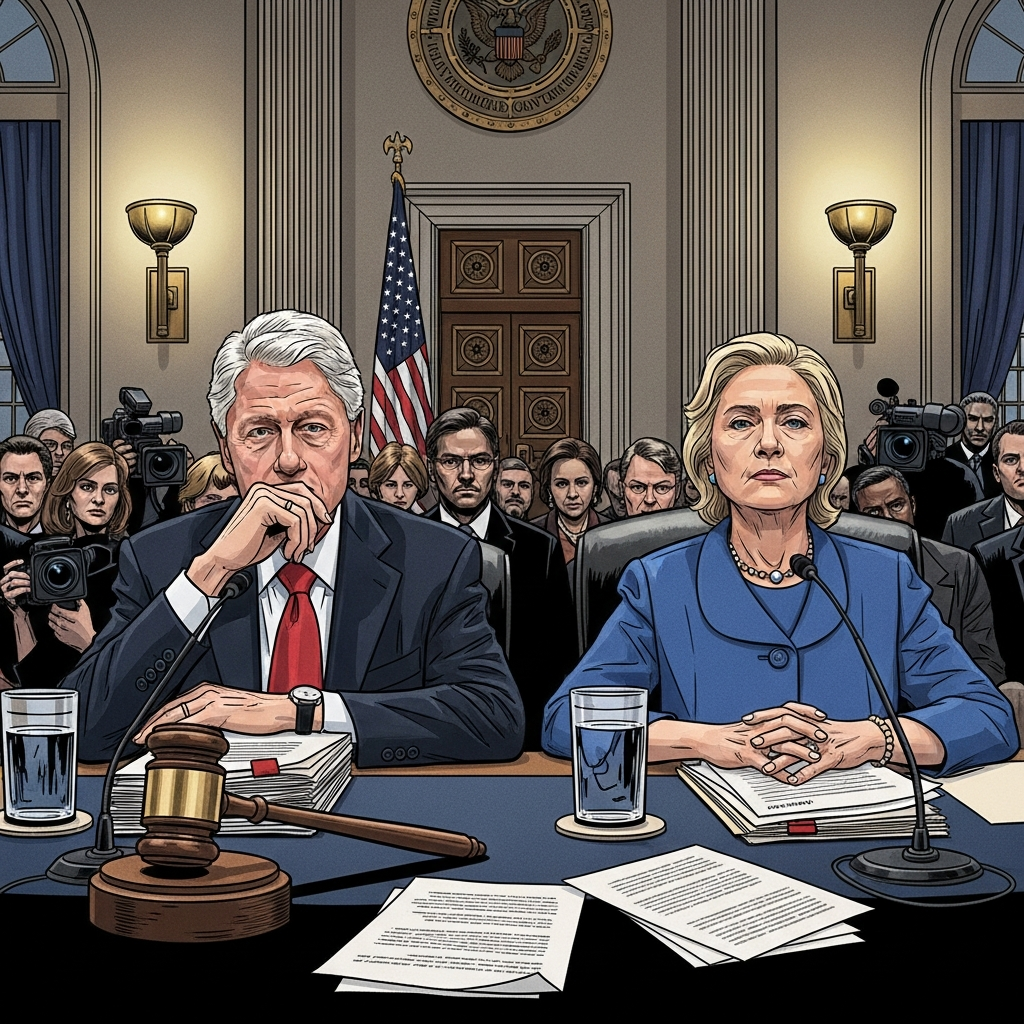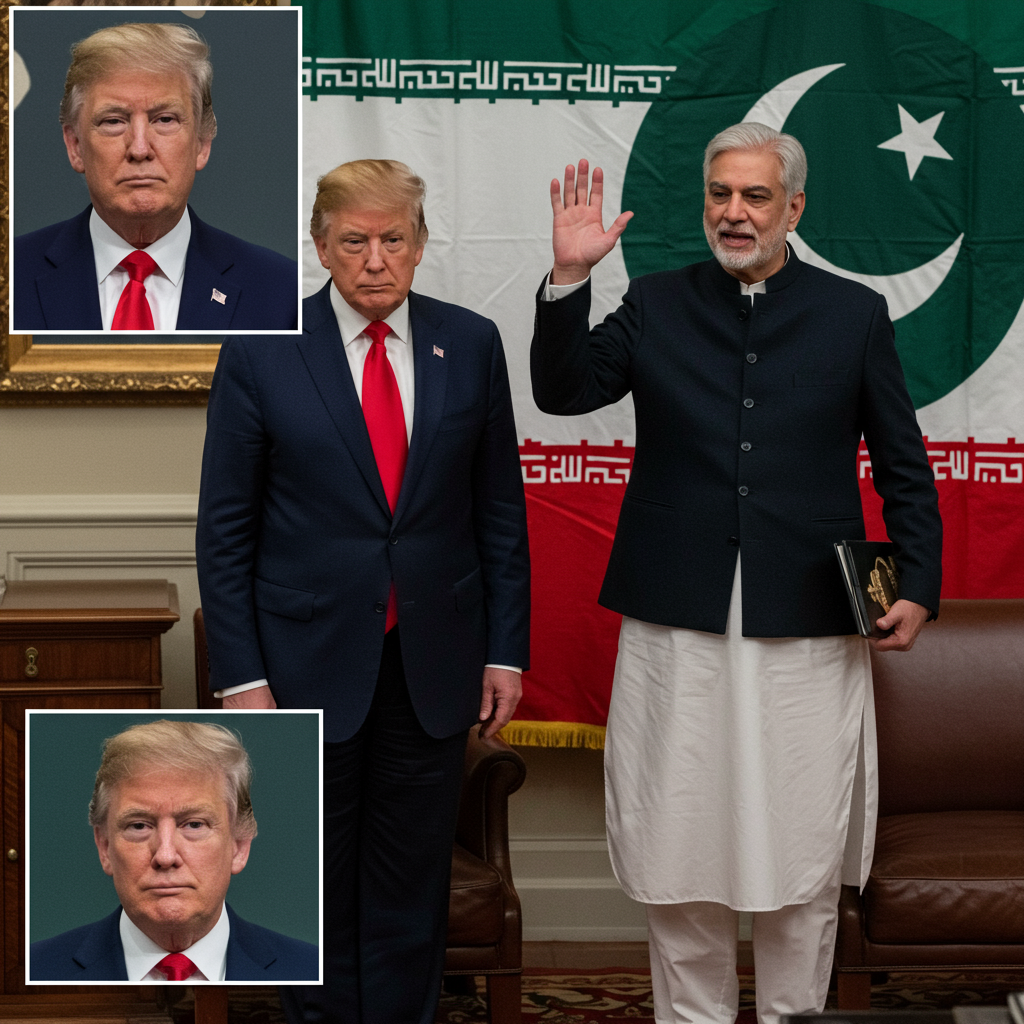POLITICS
The escalating conflict between Israel and Iran is causing a significant and unusually public split among former President Donald Trump’s most influential media allies and supporters. As hostilities intensify and President Trump raises the possibility of U.S. military involvement, a deep divide is emerging within the “Make America Great Again” (MAGA) movement, pitting traditional “America First” isolationists against foreign policy hawks who favor strong support for Israel.
This internal tension is notable because it features prominent figures who typically align closely with Trump publicly disagreeing with his stance and rhetoric on the crisis.
Anti-Intervention Voices Challenge Trump
Leading the charge against potential U.S. military entanglement are several well-known conservative commentators and politicians. Following Israel’s recent actions against Iran, former Fox News host Tucker Carlson, a consistent voice against U.S. military adventures, published a newsletter titled “An Act of War, Sponsored by the United States.” He further discussed his strong objections with former Trump advisor Steve Bannon on Bannon’s “War Room” podcast. Carlson has argued that U.S. funding and support for Israel effectively place the U.S. at the center of the conflict and that entanglement could be politically disastrous for Trump, potentially “effectively end[ing]” his presidency. Bannon has warned that being “sucked into this war” could derail Trump’s domestic agenda, including plans for mass deportations.
Trump publicly pushed back against Carlson on Truth Social, writing, “Somebody please explain to kooky Tucker Carlson that,” IRAN CAN NOT HAVE A NUCLEAR WEAPON!”” This direct confrontation prompted other key MAGA figures to defend Carlson and openly critique Trump’s position.
Commentator Candace Owens stated on X, “Donald Trump just completely fractured his base. Truly unbelievable.” Representative Marjorie Taylor-Greene, a close congressional ally of Trump, also came to Carlson’s defense, asserting that “Foreign wars/intervention/regime change put America last, kill innocent people, are making us broke, and will ultimately lead to our destruction. That’s not kooky.” Echoing concerns about escalation, InfoWars host Alex Jones posted, “Trump attacking @TuckerCarlson for not supporting a new WORLD WAR is not something any sane person should support! This is the stuff NIGHTMARES are MADE of…” Senator Rand Paul has also urged restraint, emphasizing that “diplomacy comes from restraint.”
These voices reflect a core “America First” sentiment within the base that views foreign wars as financially draining (contributing to the national debt) and a distraction from critical domestic issues. They argue that Trump campaigned on ending “forever wars,” and deeper involvement in the Middle East would betray that promise.
Supporters Rally Behind Trump
Despite the prominent dissent, other key figures within the MAGA sphere are backing Trump’s position or expressing faith in his leadership during the crisis.
Activist Laura Loomer, closely aligned with Trump, asserted, “America First is whatever President Trump says it is,” signaling support for his decisions on the conflict. Charlie Kirk, founder of Turning Point USA, expressed “full and complete trust in President Trump” in this moment, although he has also noted that foreign policy is the issue currently most dividing the right, particularly among young voters who supported Trump for his anti-war stance. Vice President JD Vance sought to reassure supporters, stating on X, “I can assure you that he [Trump] is only interested in using the American military to accomplish the American people’s goals.”
Traditional Republican hawks, such as Senator Lindsey Graham, have taken a strong stance supporting action against Iran, reflecting a long-held party position. Graham declared “Game on” in response to the conflict and has called for the U.S. to assist Israel aggressively, including potentially helping destroy Iran’s nuclear facilities.
Broader Political Landscape and Public Opinion
The debate within the MAGA world reflects broader concerns about potential U.S. involvement. Initial polling suggests widespread public apprehension, with a YouGov/Economist poll indicating that 60% of Americans across the political spectrum do not believe the U.S. military should get involved in the Israel-Iran conflict.
In Congress, there is a bipartisan push to require presidential authorization before committing U.S. troops to military action against Iran. Senator Tim Kaine (D-Va.) has called potential U.S. military involvement a “horrible, horrible mistake” and introduced a resolution demanding congressional approval. Representatives from both parties, including Thomas Massie (R-Ky.), Ro Khanna (D-Calif.), and Alexandria Ocasio-Cortez (D-N.Y.), are also seeking similar measures. Proponents argue that Congress must fulfill its constitutional duty to debate and vote on potential wars, noting that even a vote that is ultimately vetoed can influence presidential decisions, as seen during Trump’s first term regarding actions against Iranian General Qasem Soleimani.
While some figures supporting intervention cite the threat of Iran obtaining nuclear weapons, recent intelligence assessments, as noted by figures like Tulsi Gabbard citing U.S. intelligence, suggest Iran is not currently building a weapon, although it is enriching uranium to high levels. This contrasts with the rhetoric from some pro-intervention voices.
An Unusual and Defining Moment
Experts note that such open disagreement within the pro-Trump media landscape is rare. Daniel Silverman, a professor studying information flow during conflicts, highlights that while figures like Carlson are consistent in their anti-intervention views, the public nature of this split is significant.
Interestingly, while social media influencers are openly divided, major right-wing news sites have generally been more unified in supporting the U.S. backing of Israel, often portraying Trump as a powerful figure orchestrating global events, according to observers monitoring conservative media.
However, the conflict undeniably highlights a deep ideological rift within the Republican party and the MAGA movement itself. It represents an “inflection point” for the “America First” agenda, testing its limits against traditional hawkishness and strong pro-Israel sentiment. Some within the movement even express a “bubbling frustration with Israel,” though often hesitant to voice it publicly.
As President Trump’s rhetoric escalated further, including posts demanding “UNCONDITIONAL SURRENDER!” from Iran and claiming to know the location of the “Supreme Leader,” the internal debate is likely to intensify. The Israel-Iran conflict has become a defining issue, forcing Trump to navigate the competing pressures of his isolationist base and traditional Republican foreign policy stances, exposing a potentially damaging fault line within his coalition.




